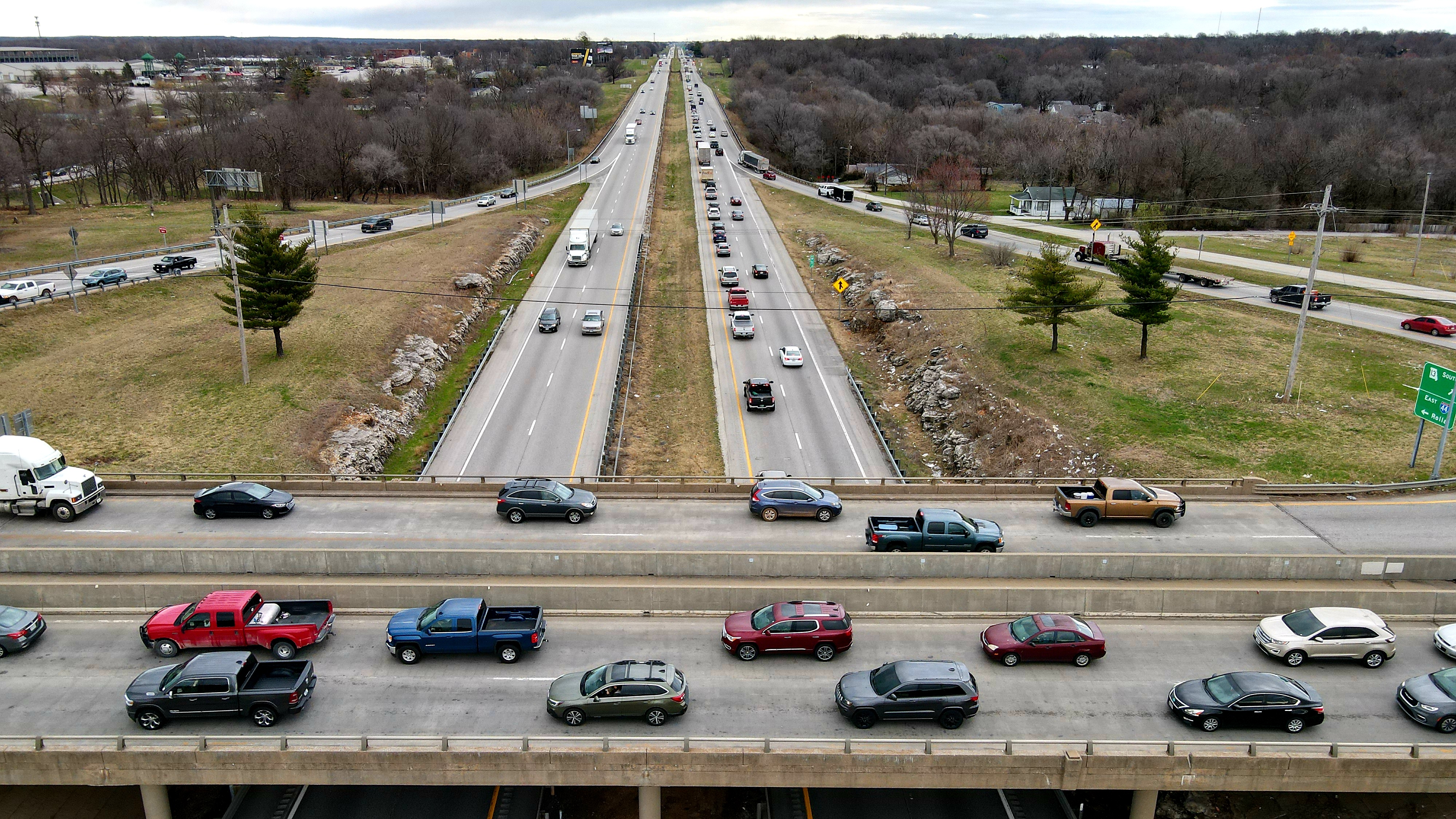Of the 201 vetoes made by Missouri Gov. Mike Parson in the state budget, there was bound to be some disappointment. But of the $51.8 billion budget, the largest in state history, lawmakers and leaders around the state found reason to celebrate the funding coming in for various projects.
That disappointment and celebration was reflected by Springfield area elected officials, including state representatives Betsy Fogle and Bill Owen, and Springfield Mayor Ken McClure.
While they were grateful to see funding for capital improvements at Hammons Field and the Jefferson Avenue footbridge, the veto of funding for improvements to Interstate 44 and LeCompte Road, among other Springfield-area projects, stung.
Items included, nixed in final budget
The 201 line-item vetoes made by Parson made up a significant portion of the 275 earmarked items, and equated to $555.3 million. Prior to Parson’s round of vetoes, the Missouri General Assembly passed a budget totaling $53.5 billion, over $1.7 billion more than his recommended budget.
McClure, who has worked in the appropriations process “in one form or another” for almost 50 years, said this was the most vetoes he’s ever seen by any governor.
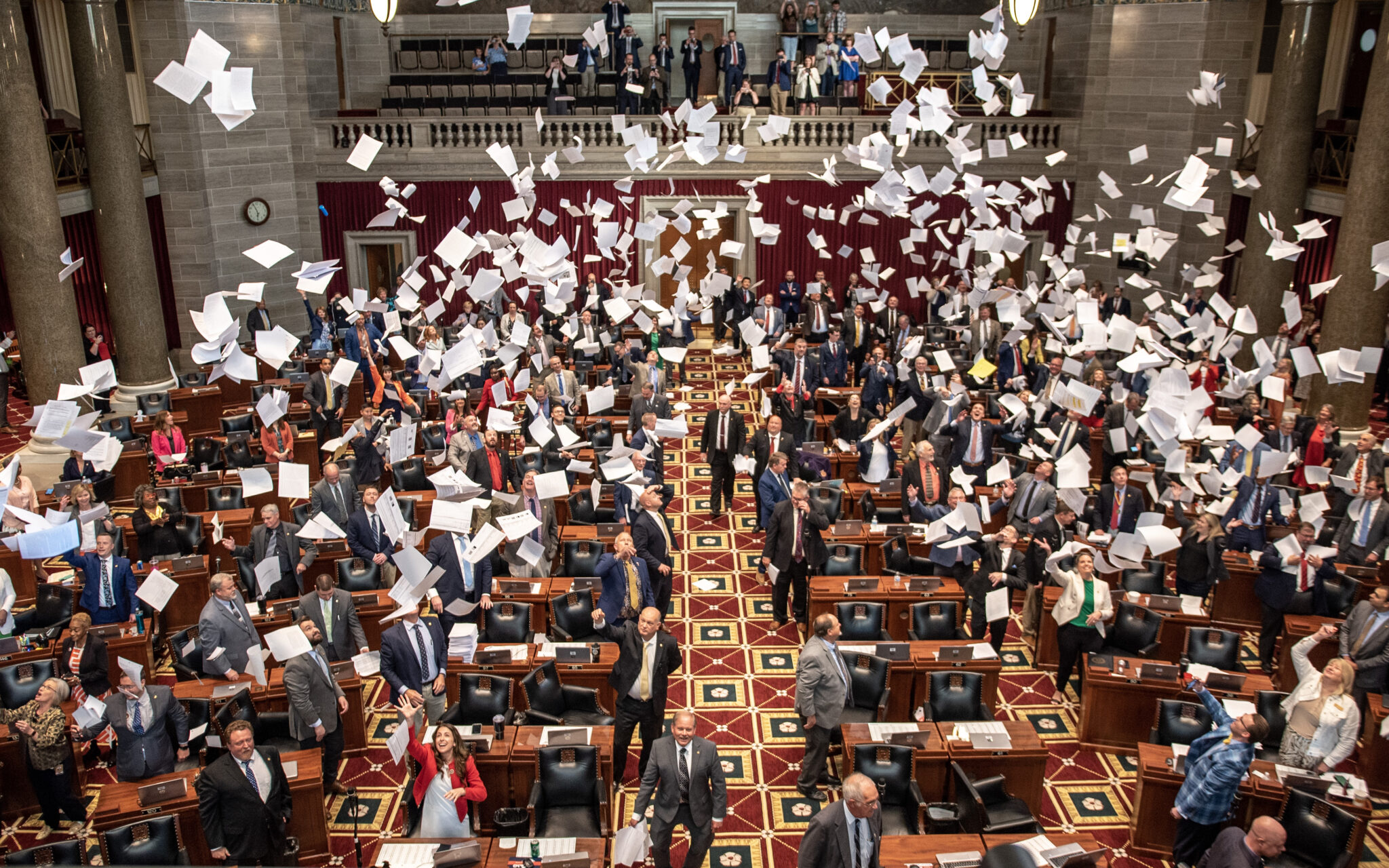
“But this is an unusual time, with a surplus, a variety of funds and a lot of earmarked funds, unprecedented in its amount,” he said.
Some major allocations in the budget include:
- $2.8 billion to expand and rebuild Interstate 70 across the state from Kansas City to St. Louis;
- $3.6 billion to fully fund the K-12 Foundation Formula for the fifth year in a row;
- $78 million to increase rates for child care providers;
- $70.8 million for public institutions of higher education for a 7 percent core increase;
- $233 million to fully fund school transportation needs for the second year in a row;
- $300 million for a new mental health hospital in Kansas City.
While Springfield is a beneficiary of a lot of the statewide funding included in the budget, funding for several projects closer to home were approved and nixed by Parson.
Springfield area projects that were given the Governor’s stamp of approval include:
- $8 million for repairing the Jefferson Avenue Footbridge, an iconic symbol of Commercial Street and a fixture of the northern Springfield skyscape;
- $4 million for capital renovations at Hammons Field in order to ensure the ballpark meets Major League Baseball-mandated facility requirements;
- $5 million to aid in the construction of a new youth behavioral health campus in Springfield;
- $3 million for Ozarks Technical Community College;
- $7.2 million for Missouri State University;
- $20 million for an I-44 corridor improvement environmental study impact assessment;
- $2.5 million for construction and repairs of a bridge at Fellows Lake.
With the number of items in Springfield that received funding, McClure said that he “can’t help but be pleased” with the final budget bills.
Among the projects that were vetoed were:
- $28 million for I-44 improvements improvements in Springfield;
- $12 million for the Cooper Sports Complex;
- $10 million for Victory Mission for a housing project;
- $2 million for renovations at the Discovery Center;
- $34 million for improvements to LeCompte Road in northeast Springfield. Due to an error, the amount in the budget actually was 10 times the $3.4 million that was sought for the project.
“With this budget, our administration has done the right thing — the conservative thing — to make strategic investments and maintain responsible spending,” Governor Parson said in a press release on June 30. “Missouri's economy is strong. Our revenues are up, businesses are growing and investing, and we maintain a historic revenue surplus, but we must not spend just for the sake of spending.”
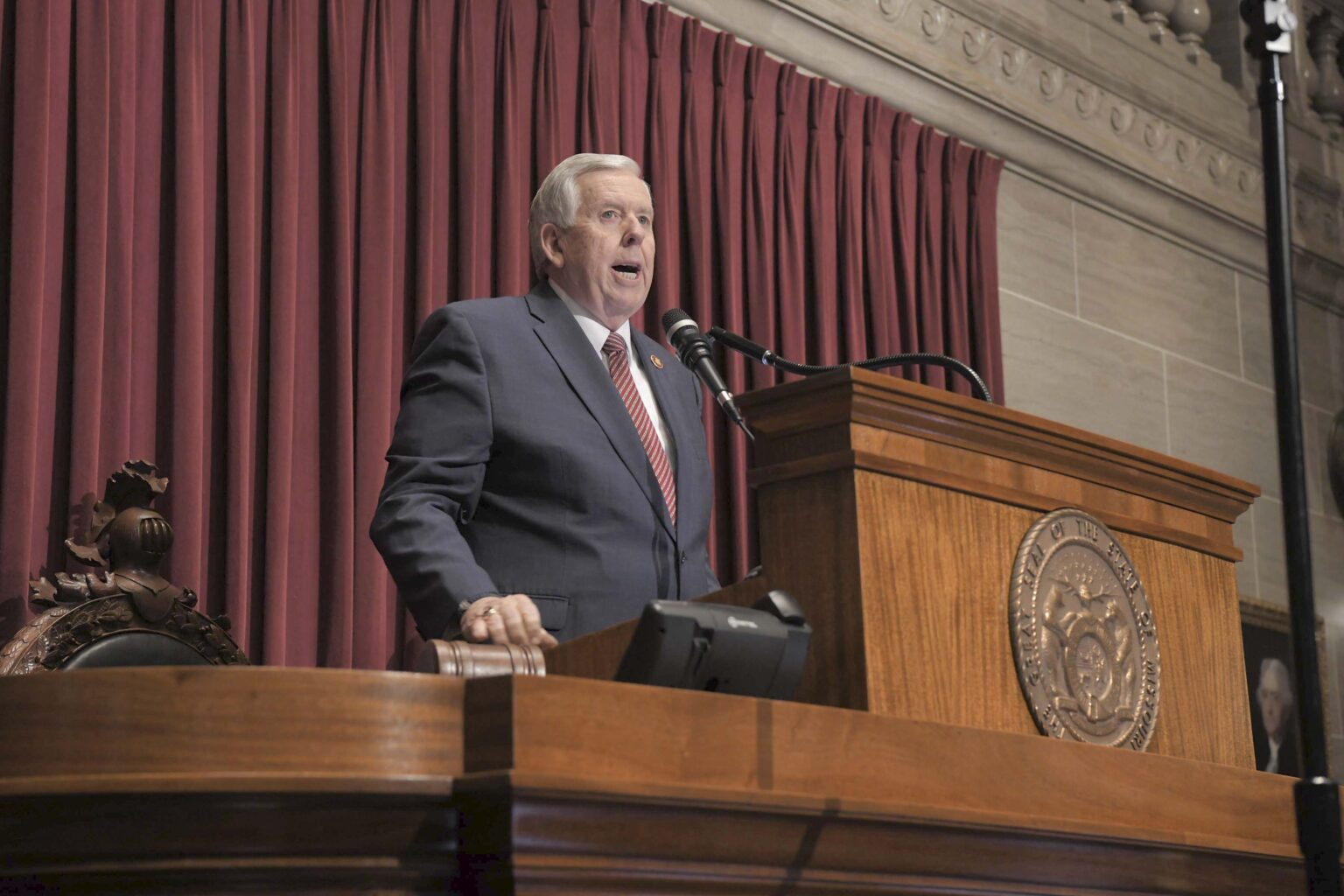
Local leaders express frustration, gratitude with Parson’s appropriations
Last year, Parson vetoed $5 million in funding for the Jefferson Avenue footbridge, after Springfield State Sen. Lincoln Hough led the charge in cutting $69.2 million for construction of the Rock Island Railroad Trail from Franklin County to Henry County, a project that Parson included in his initial budget recommendations.
While McClure was mostly satisfied by the Springfield projects that received funding in the state budget, with a couple of exceptions, he was especially grateful for the $8 million allocated for the Jefferson Avenue footbridge.
The footbridge closed down due to structural issues prior to McClure’s first term as mayor, when he served as the Seat D councilmember. When in service, the bridge allows pedestrians to cross 13 rail lines from the Commercial Street Historic District to Chase Street.
“Just being able to find the right approach on that, given the age of that structure as well as new requirements that would have to go in — it’s been challenging,” he said. “The bids, when we did issue them, came in much higher than we could justify. So I’m very, very hopeful that this will give us the funding to push us across the finish line.”

Owen said that he was “lukewarm at best” on the Jefferson Avenue footbridge and the bridge at Fellows Lake.
“I don’t know what the economic value is on the footbridge,” he said. “And I questioned the fact that this land that we’re building (the Fellows Lake bridge on) is City Utilities property and why we’re spending state taxpayers money on the property of CU.”
Owen was, however, happy about the $4 million for Hammons Field, saying that it was “very important” in order to keep the Double-A Cardinals in Springfield.
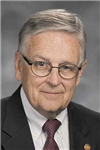
Bill Owen,
District 131. (Photo: MO House of Rep)
“I was ecstatic to see that the support for funding from the state level came in and will help support our Cardinals back home,” Fogle told the Hauxeda.
McClure, an integral player in the city’s purchase of Hammons Field in February, was obviously thrilled with the funding included for the ballpark.

“You just can't put a price tag on that and so to see that recognized at the state level, at the highest level is reassuring and I know that it will pay dividends over and over not only in Springfield and southwest Missouri but really statewide as people look to that as an attraction when they come here,” McClure said.
Hammons Field's first major renovation since the city’s acquisition was just completed with the installation of new LED stadium lights.
Fogle, Owen and McClure also were glad to see funding for the K-12 Foundation Formula, seeing as Springfield is home to the largest public school district in the state, as well as monies allocated for higher education.
McClure commended the work of Springfield’s local delegation of legislators for the funding that was approved for Springfield-area projects, but was, like them, disappointed in the projects that didn’t survive Parson’s vetoes.
While LeCompte Road was vetoed at 10 times higher than the asked amount, Parson had the ability to amend the appropriation and fund the $3.4 million requested.
“We still need to do the project,” McClure said. “This will be a key item on our city list to try to fund next year because it's so important to that area and it will pay dividends.”
North LeCompte Road, which is located in Fogle’s House District, carries a significant amount of freight traffic and is surrounded by undeveloped land and industrial sites, including the Springfield Underground, near Highway 65 and I-44.
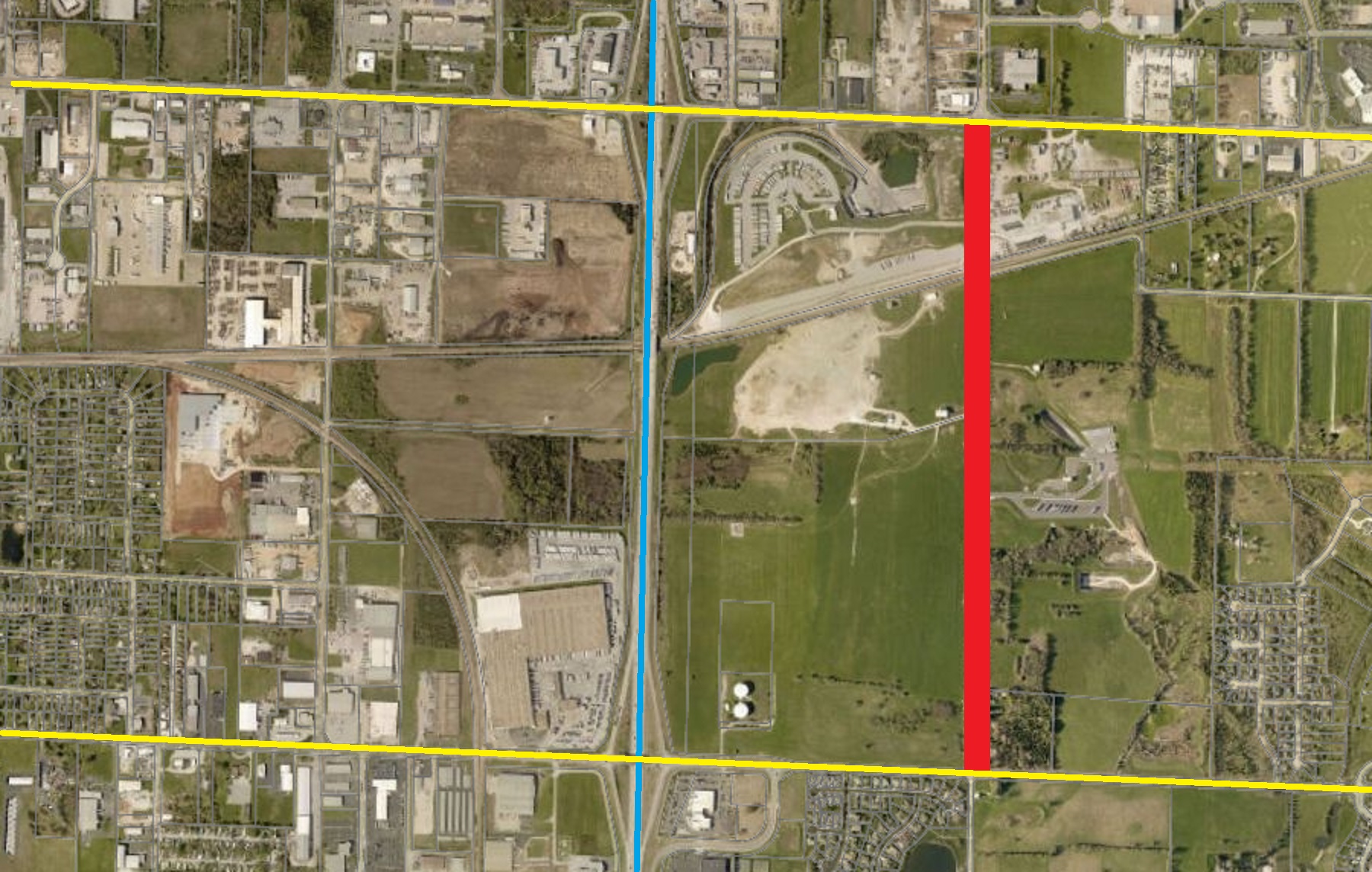
“There have been things that even in my short tenure in Jefferson City were not approved in the budget my first or second year, but we saw them come to completion this year,” Fogle said. “So I'll be interested to have conversations with, of course, (Hough) in the Senate and then the Governor's office to see what we missed the mark on and what we need to do moving forward.”
The second, and actual most expensive Springfield earmarked item, though it paled in comparison to the $2.8 billion for I-70, also failed to garner support from Parson.
$28 million vetoed for I-44 while $2.8 billion is approved for I-70
Owen has spearheaded the efforts to secure funding for I-44, especially since he was provided data that illustrated the danger caused by the traffic choke point at Kansas Expressway and I-44.
In the quarter-mile stretch of the Kansas Expressway bridge over I-44, in all directions, there were 260 crashes, 90 of which resulted in injury and two in deaths during the five year period prior to the COVID-19 pandemic, according to the Missouri State Highway Patrol.
“My thing, ever since I got to Jeff City, has been the horrible intersection of Highway 13 and I-44,” Owen said.
The 4.7 mile stretch of interstate between Kansas Expressway and Highway 65 is already slated to be widened to six lanes, with federal funds already allocated for the project. Additionally, MoDOT plans on adding a flyover for traffic traveling southbound from Kansas Expressway onto eastbound I-44, removing the diverging diamond, and tunneling Norton Road under Kansas Expressway.
The $28 million from the state would’ve helped accelerate the multi-pronged project, and fund the repaving of that same 4.7 mile stretch and expand and restore the bridges at National Avenue, Grant Avenue and Broadway Avenue.
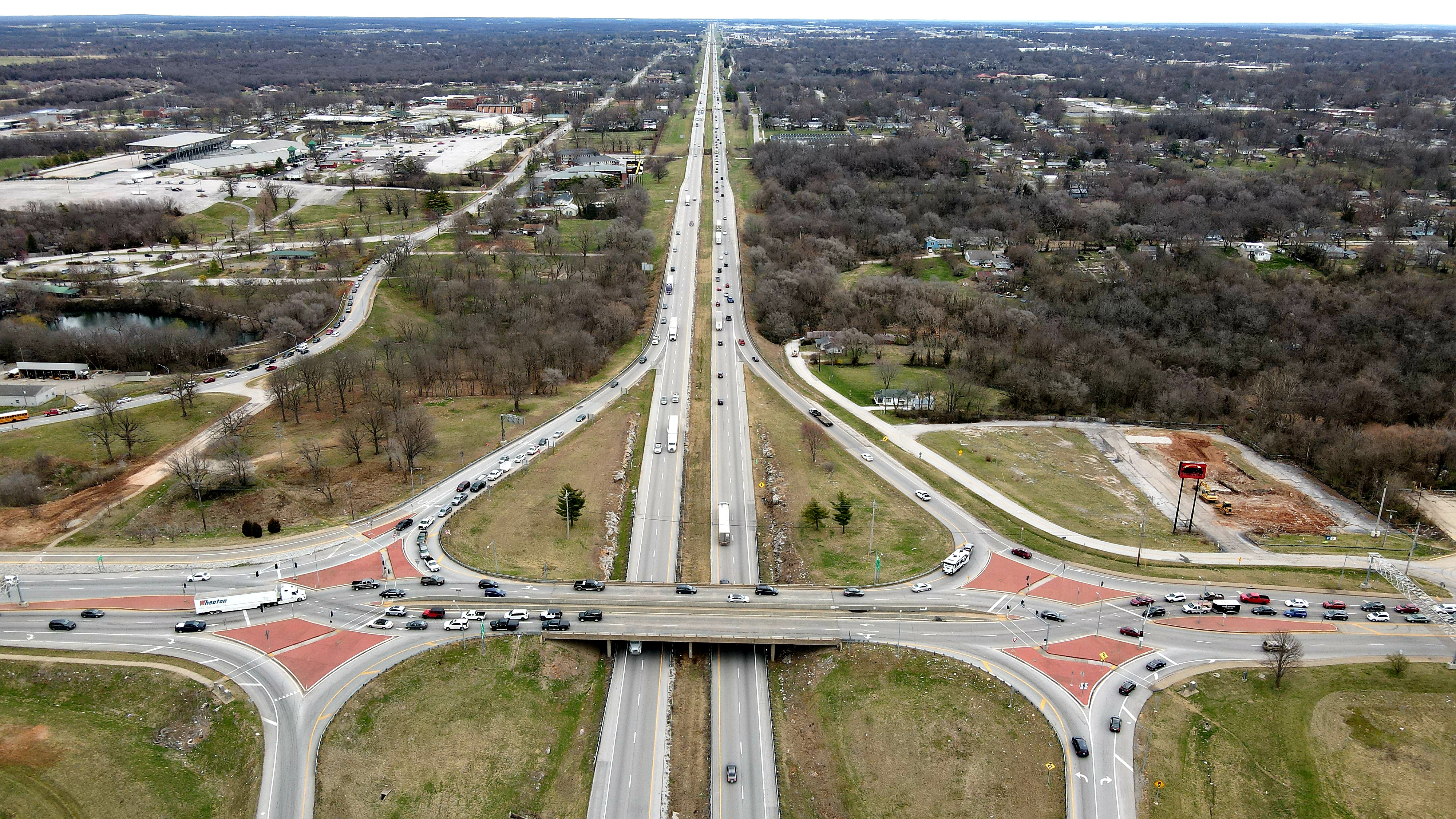
The lane-widening project is essentially not possible without the bridge improvements, making it effectively contingent on the additional $28 million.
“That federal money is now just going to sit there,” Owen said.
And while the intersection improvements at Kansas Expressway are going to happen regardless, Owen said MoDOT would like to be able to work on it all at the same time, to minimize impact on traffic and allow the pavement to lay better.
“You're going to make it very difficult for traffic to move through there as you're doing the intersection rebuild, then if you turn around a year or two later and then start doing the six-laning and I mean it just it just prolongs how difficult the flow of traffic is going to be for a longer period of time,” Owen said.
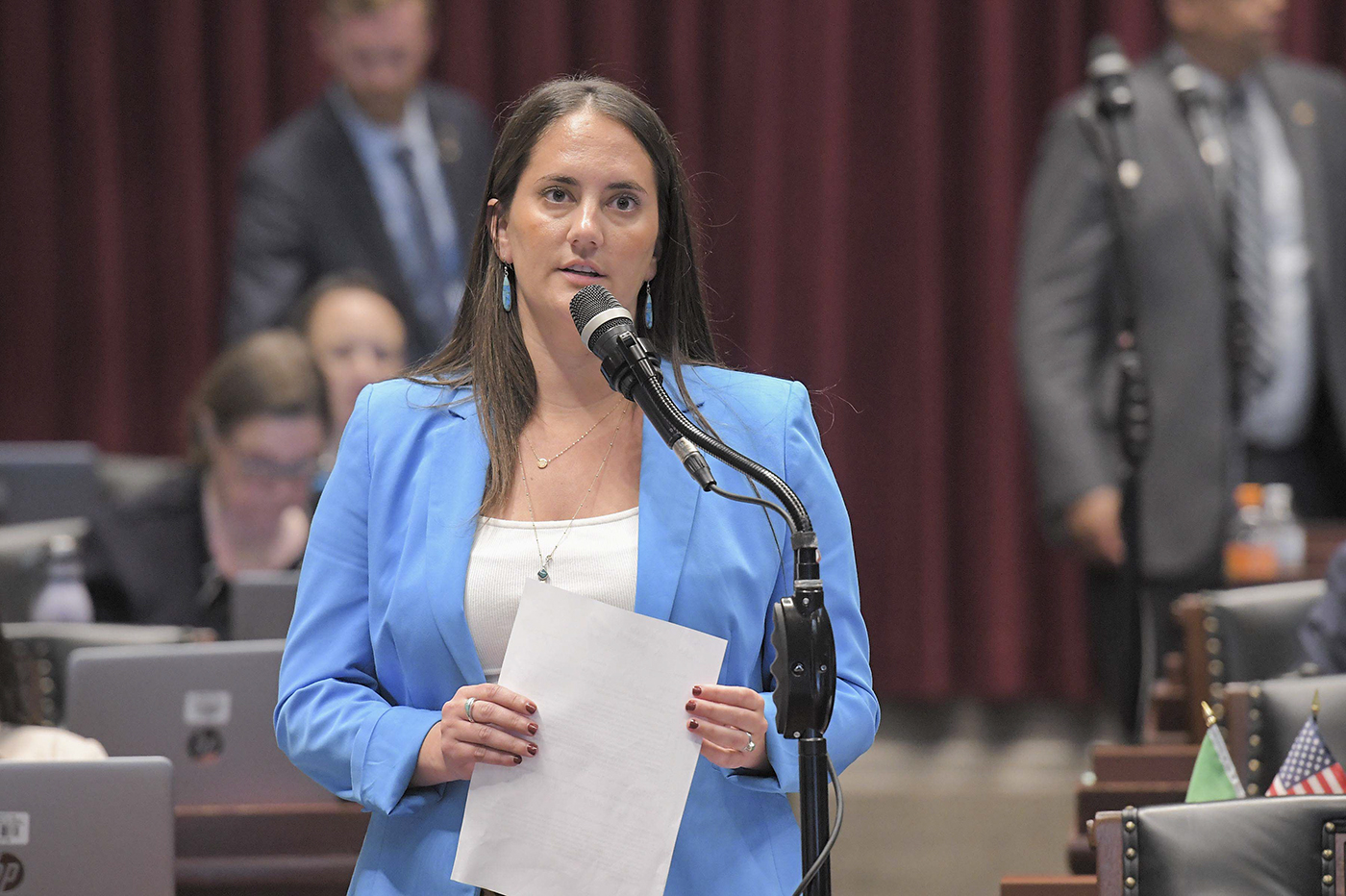
Fogle and McClure also were disappointed to see the veto of funds for I-44.
“There's no question that is going to have to be included, whether that’s next year or in subsequent years because we're going to have to focus on I-44,” McClure said. “The I-70 money is great, badly needed, but I-44 is not far behind.”
“I was really excited about the bipartisan support that that had from the Springfield delegation,” Fogle said, who worked closely with Owen, as well as Rep. Stephanie Hein to push the funding for I-44 in the House. “We all worked very hard to make sure that that got in the legislature's version of the budget. I was disappointed that that didn't cross the finish line.”
Fogle said that she looks forward to better understanding why Parson vetoed the funding for I-44, due to the vagueness of his veto letter for that item, which read:
“The Fiscal Year 2024 budget that was passed by the Missouri General Assembly totals $53.5 billion, over $1.7 billion more than my recommended budget. Additionally, the Missouri General Assembly passed legislation which is estimated to result in a loss of ongoing general revenues exceeding $300 million and increasing ongoing general revenue expenditures by over $200 million. In addition, Missouri has consistently maintained a AAA bond rating and we will ensure a balanced budget for years to come. In light of all these factors, I have vetoed this provision, in an effort to help ensure the financial stability of Missouri beyond my Administration and the current General Assembly. Further, other funding mechanisms should be pursued in lieu of earmarked state funding for this project.”
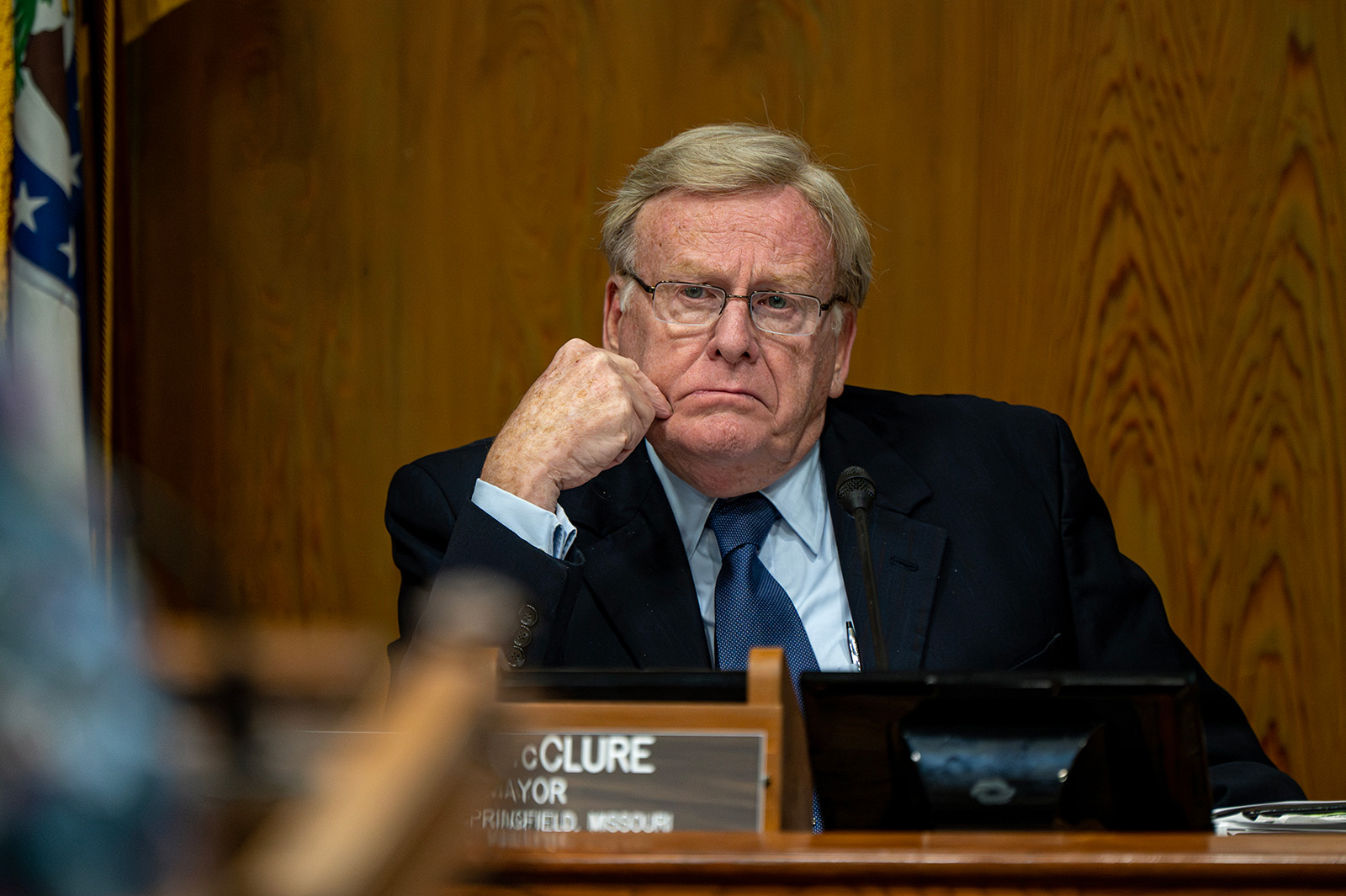
Owen thinks that funding for I-70 should’ve been more concentrated on problem areas, but understands that not as much attention was spent on I-44 because it was still awaiting an environmental study, funding for which was approved in the budget.
Fogle, Owen and McClure all were glad to see the environmental study was approved, and hope that serves as a precursor for future funding for I-44.
“I was very pleased when I found out the $20 million is there because that tells me there was recognition of the value of that work on I-44,” McClure said. “Getting the environmental funds included I think is a necessary step. It would have been nice to have the additional money on top of that, but I think this is probably a good faith commitment that this has to continue.”
While the study could take several years to complete, if funding is secured for I-44 in Springfield, work could begin due to environmental studies conducted by the city, according to Owen, rather than a statewide study of the interstate from the Oklahoma state line to St. Louis.
Fogle and Owen indicated their intention to continue working toward securing the funding for I-44 in future sessions.
“This isn't going to go away from me, I'm gonna keep pushing,” Owen said. “This is too critical a component…I want to try and get it done the way we had planned and we'll come back at it again next year, and go at it again.”
